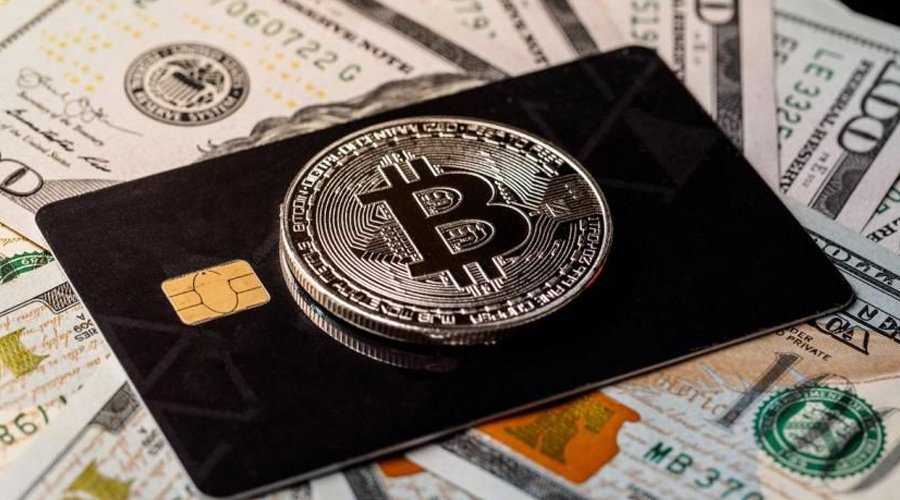
In the ever-evolving landscape of cryptocurrency, Bitcoin ATMs have emerged as a bridge between the digital and the physical world. They allow users to engage with Bitcoin more tangibly by converting fiat into digital gold and vice versa. But the question on everyone’s mind is, “Are Bitcoin ATMs secure for transactions?” Let’s peel back the layers of this modern financial phenomenon and evaluate the security of Bitcoin ATMs from a Neil Patel-esque marketing angle.
Bitcoin ATMs: The Intersection of Convenience and Security
Bitcoin ATMs have been lauded for their convenience. They offer a quick, straightforward way to purchase Bitcoin without the need to navigate complex online exchanges. However, the convenience factor can sometimes overshadow the security considerations. It’s crucial to recognize that like any financial transaction, security should be paramount. Bitcoin ATMs operate by connecting to the Bitcoin network via the internet, and this connectivity is where security comes into play.
Understanding the Risks: Physical and Cyber Threats
The security risks at Bitcoin ATMs can be bifurcated into two categories: physical and cyber. Physically, the machines can be susceptible to tampering and skimming devices, much like traditional ATMs. Cyber threats encompass a broader spectrum, including hacking, malware, and phishing scams, especially if the ATM’s software isn’t up-to-date or the machine isn’t properly maintained.
The Shield of Anonymity: A Double-Edged Sword
One of the selling points of Bitcoin ATMs is the anonymity they offer. Users don’t always need to provide personal information to complete a transaction. This anonymity can be a double-edged sword, though. While it protects user privacy, it can also make it difficult to trace transactions if something goes awry. However, many Bitcoin ATMs now implement various levels of KYC (Know Your Customer) to align with regulatory standards, which adds a layer of security but also chips away at the anonymity.
The Backbone of Security: Transaction Verification
Transaction verification is the backbone of Bitcoin ATM security. Most ATMs will require confirmation of a transaction via a mobile phone text message or email. This two-factor authentication serves as a checkpoint to ensure that it’s the rightful owner conducting the transaction. It’s a simple yet effective security measure that can prevent unauthorized Bitcoin transactions.
Operator Vigilance: The Human Aspect of ATM Security
The security of a Bitcoin ATM also depends on the vigilance of the operators. Operators need to conduct regular maintenance, update software, and monitor machines for any suspicious activity. An operator’s due diligence is just as critical as the technology that powers the ATMs. Users should prefer ATMs from reputable operators with a proven track record of security and customer service.
User Responsibility: Secure Transactions Start with You
When it comes to the security of Bitcoin ATMs, the user’s responsibility cannot be overstated. Secure transactions start with the individual. This includes using strong passwords, protecting private keys, and being aware of one’s surroundings when making transactions at an ATM. Users should also verify the authenticity of the Bitcoin ATM by checking if it is listed on the operator’s official website.
Regulatory Framework: A Safety Net for Bitcoin ATM Transactions
The regulatory framework surrounding Bitcoin ATMs serves as a safety net for users. In many jurisdictions, Bitcoin ATM operators are required to register with financial authorities and comply with anti-money laundering laws. This compliance ensures that Bitcoin ATMs adhere to certain security standards, providing an additional layer of protection for users.
Technological Fortifications: Making Bitcoin ATMs Safer
Technologically, Bitcoin ATMs are becoming more secure. Advanced models come equipped with security features such as SSL encryption for transactions, which ensures that the data transmitted is secure. Additionally, the use of hardware wallets for transaction facilitation is gaining traction, providing a more secure way to store Bitcoin post-purchase.
The Verdict: Navigating Bitcoin ATM Security
So, are Bitcoin ATMs secure for transactions? The verdict isn’t black and white. Bitcoin ATMs can be secure, provided that they are properly maintained, operated by reputable providers, and regulated by financial authorities. However, like any technology, they are not impervious to risks. User education and responsibility are pivotal in safeguarding transactions.
In Conclusion: The Secure Use of Bitcoin ATMs
In conclusion, Bitcoin ATMs offer a user-friendly way to transact with Bitcoin. While they come with inherent risks, these can be mitigated through proper due diligence by both the operator and the user. As the technology matures and regulatory oversight increases, the security of Bitcoin ATMs will continue to improve. For now, users can engage with these machines securely by being informed, vigilant, and proactive about their transactional safety.


